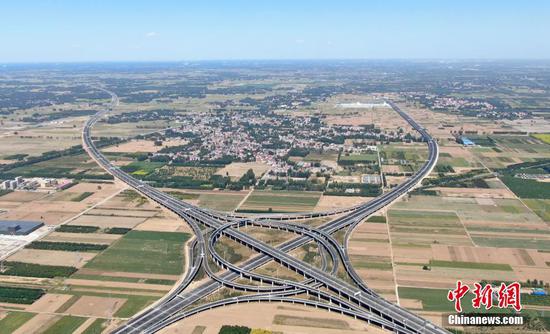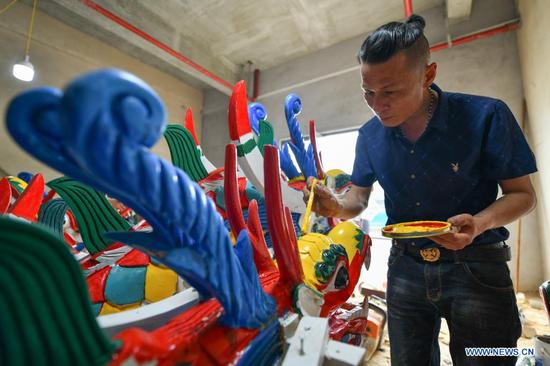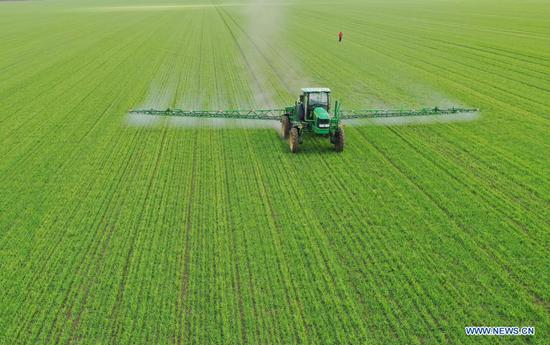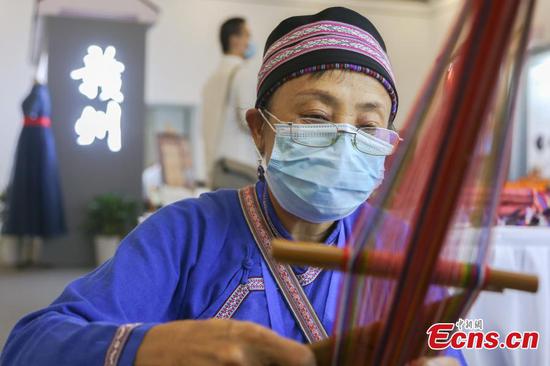China's top legislature has called on governments at all levels to fully implement and popularize the law on the promotion of rural vitalization to drive high-quality agricultural development and ensure the well-being of rural residents.
Calling it a fundamental and comprehensive law on agriculture, rural areas and farmers, Li Zhanshu, chairman of the Standing Committee of the National People's Congress, emphasized it aims to boost economic growth and optimize agricultural industry.
He made the remarks on Thursday when addressing a symposium on the implementation of the law, which will come into effect on Tuesday.
Calling for efforts to apply tailored measures to improve rural industrial development while ensuring food security and improving rural residents' livelihoods, Li also raised some other requirements for implementing the law, including strengthening ecological conservation and protecting the legitimate rights and interests of farmers.
Educating and guiding farmers to enrich their lives, vitalize their homes and have a scientific and healthy lifestyle are also essential in its implementation, he said.
Government agencies and legislatures at each level should interpret the law to the public by various means and make supporting rules in a timely manner to ensure the law can be better implemented, Li said.
The law, part of a broader effort to build China into a modern socialist country, was passed by the NPC Standing Committee in late April after a third review.
At the time, Wang Ruihe, a member of the NPC Standing Committee's Legislative Affairs Commission, said issues involving agriculture and farmers are basic problems for the country, making such legislation a top priority.
To promote rural vitalization, "governments should formulate development of villages at first and suit their measures to local conditions", he said, adding that rural construction needs to respect the will of villagers, instead of demolishing their homes illegally.
The law also aims to improve the quality of life for rural residents and promote rural vitalization in a few specific clauses, for example urging improvements in the provision of toilets and making facilities more accessible for the elderly.
As the number of traditional villages is in decline, the law also asks governments to intensify their conservation, including measures to prevent them from being damaged by fires, floods or earthquakes as well as monitoring and evaluating their development, Wang added.
Wang Lejun, an official at the Ministry of Agriculture and Rural Affairs, said it will help those engaged in agriculture-related industries to learn about and understand the law, guiding them to solve problems through rule of law.
The ministry will also coordinate with the top legislature to make and amend some other laws concerning rural vitalization, including those on the quality of agricultural products and new plant variety conservation, he said, adding that supporting regulations are also being drafted.


















































